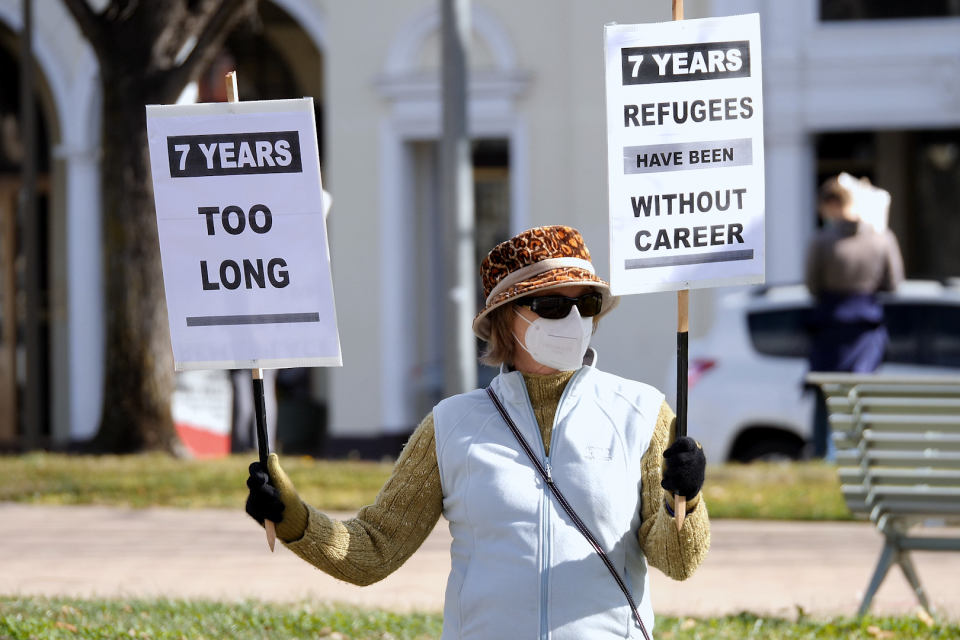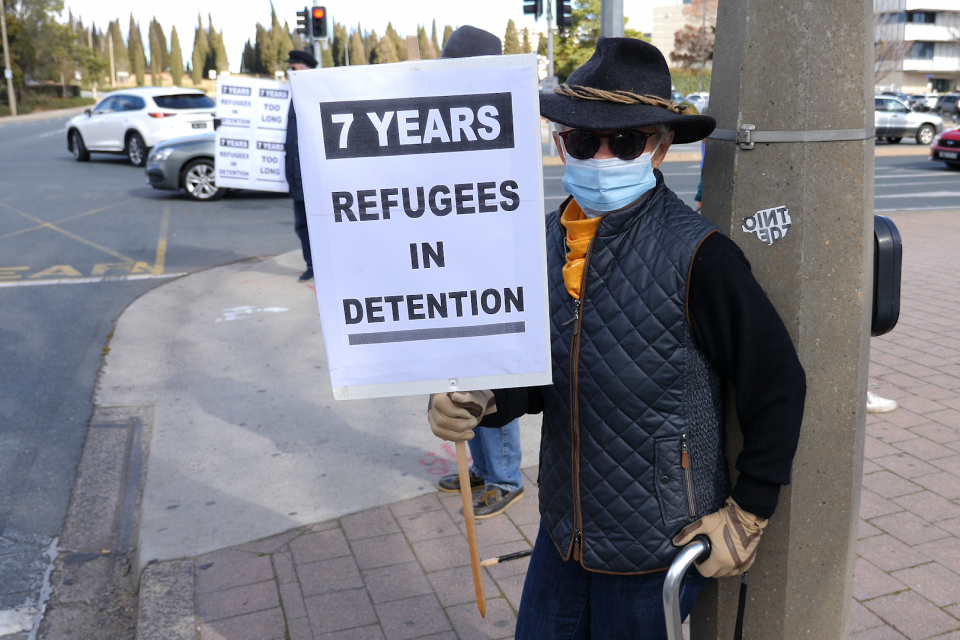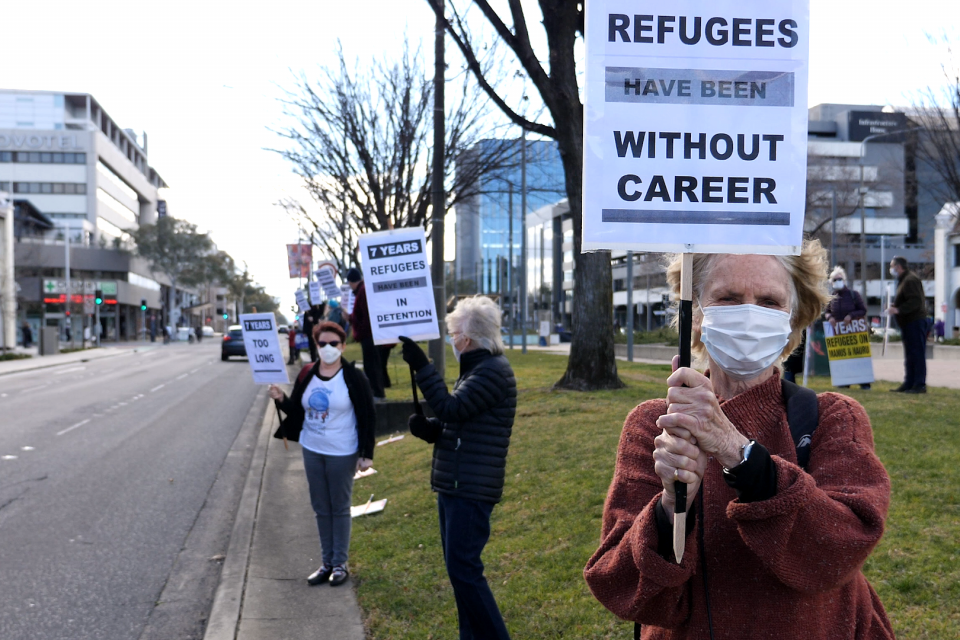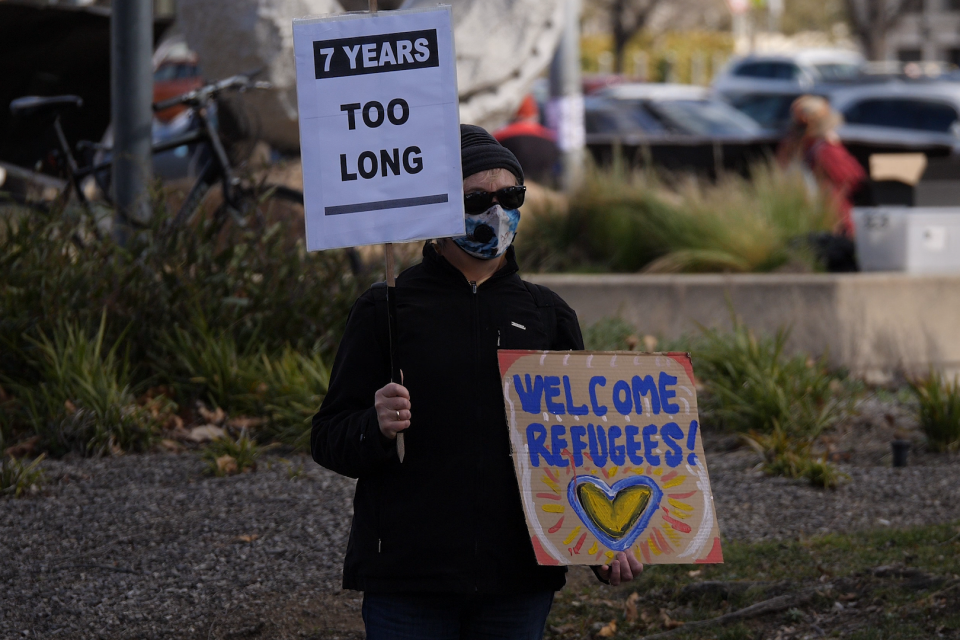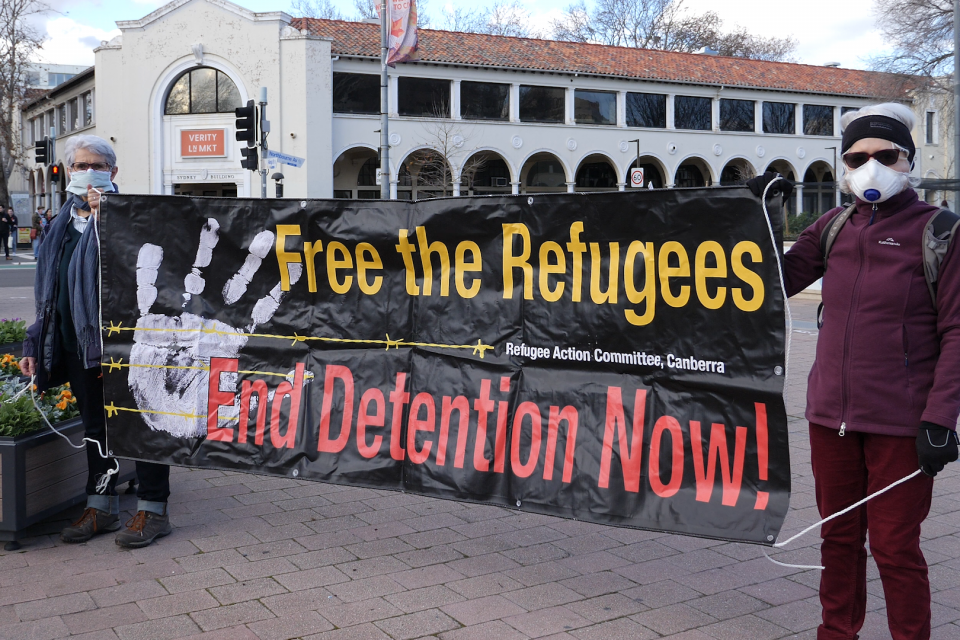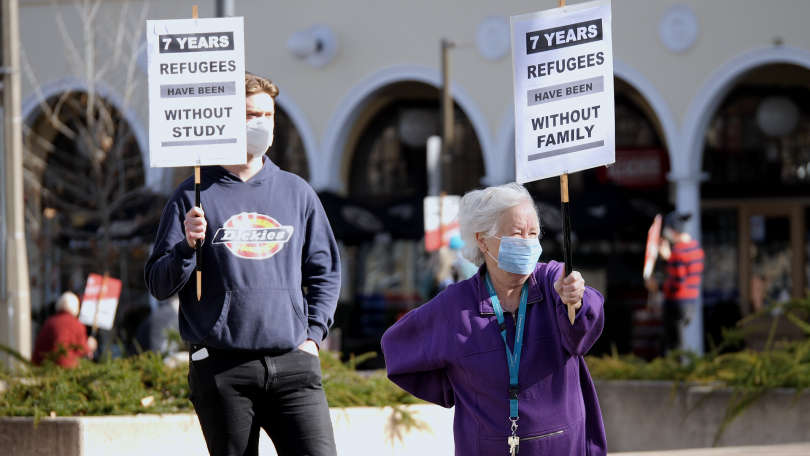
Canberra Refugee Action Campaign protestors demand an end to indefinite detention for refugees and asylum seekers. Photo: Region Media.
Seven years to the day that former Prime Minister Kevin Rudd announced no asylum seeker arriving by boat would be settled in Australia, protestors took to the streets around Australia to demand the release of hundreds of asylum seekers and refugees from detention.
Around 100 people lined Canberra’s Northbourne Avenue from London Circuit on Sunday (19 July) calling on the Morrison Government to end its offshore detention practices and settle asylum seekers and refugees in Australia.
Canberra protestors call for end to indefinite offshore detention
Wearing masks and following appropriate social distancing practices, around 100 people stood in silence along Northbourne Avenue last Sunday in support of an end to indefinite offshore detention of refugees and asylum seekers.
Posted by The RiotACT on Tuesday, July 21, 2020
“We are really concerned about the rapidly deteriorating mental health of the refugees,” said Dr John Minns, an Associate Professor in Politics and International Relations at ANU and refugee advocate with the Refugee Action Council (RAC).
“The Government has no plan or timeline to get these people out of detention or address the situation. The average jail time for a rapist in Australian is four years, whereas these people have been locked up for seven years with no charge.
“People have been brought here under the Medevac legislation for medical treatment and are being locked up in extremely cramped facilities – they have not even been able to exercise.”
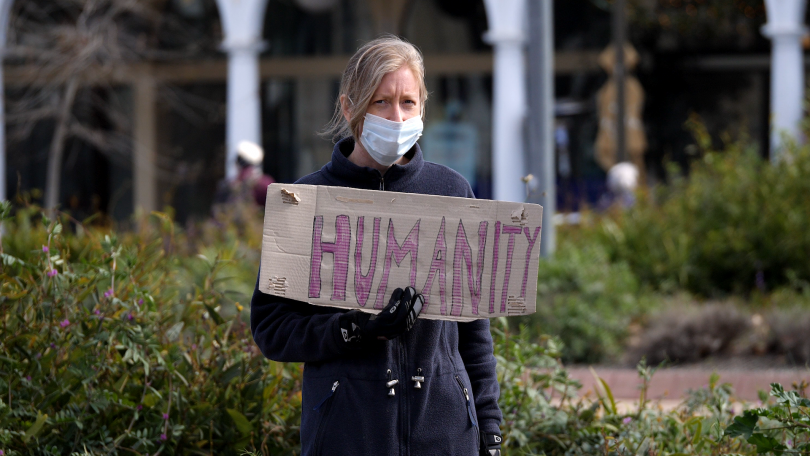
Canberra Refugee Action Campaign protestors demand an end to indefinite detention for refugees and asylum seekers. Photo: Region Media.
Just two days after the protest, two asylum seekers in a Queensland detention facility attempted to take their own life and were transferred to a Brisbane hospital.
Australian Border Force was named as their next of kin, according to RAC.
Photos of the centre show single beds a metre apart from each other – a concern during the pandemic, Dr Minns said, as well as inadequate distancing measures and burnt food.
“The obvious and urgent thing that needs to be done is social distancing,” Dr Minns said. “People are being brought here for medical treatment and are being kept in extremely cramped facilities.
“It is important to make clear that our campaign has not died during COVID-19 … we need to make sure we go back to fundamentally humanitarian principles of how a civilised country should operate.”
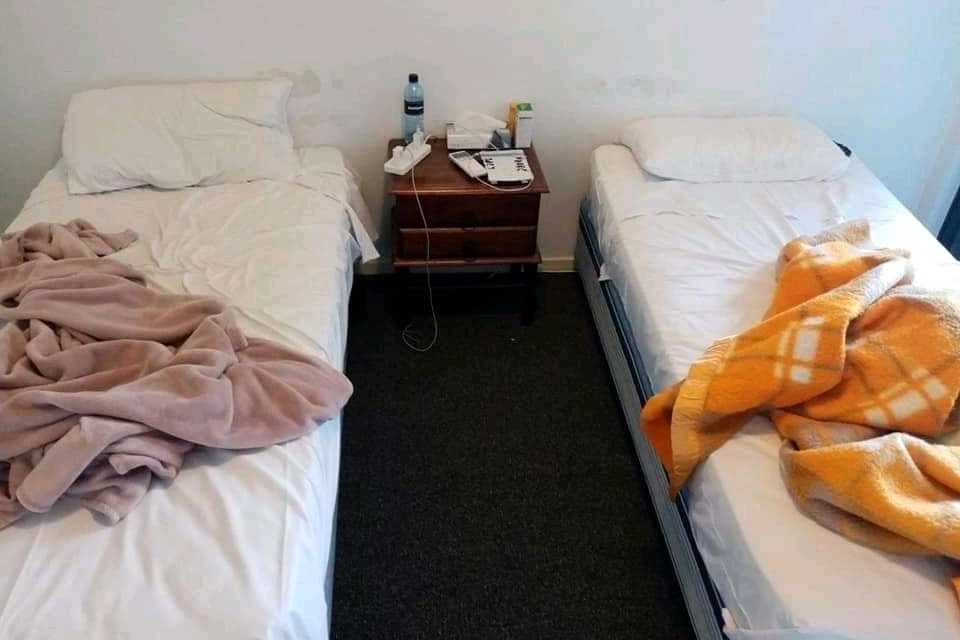
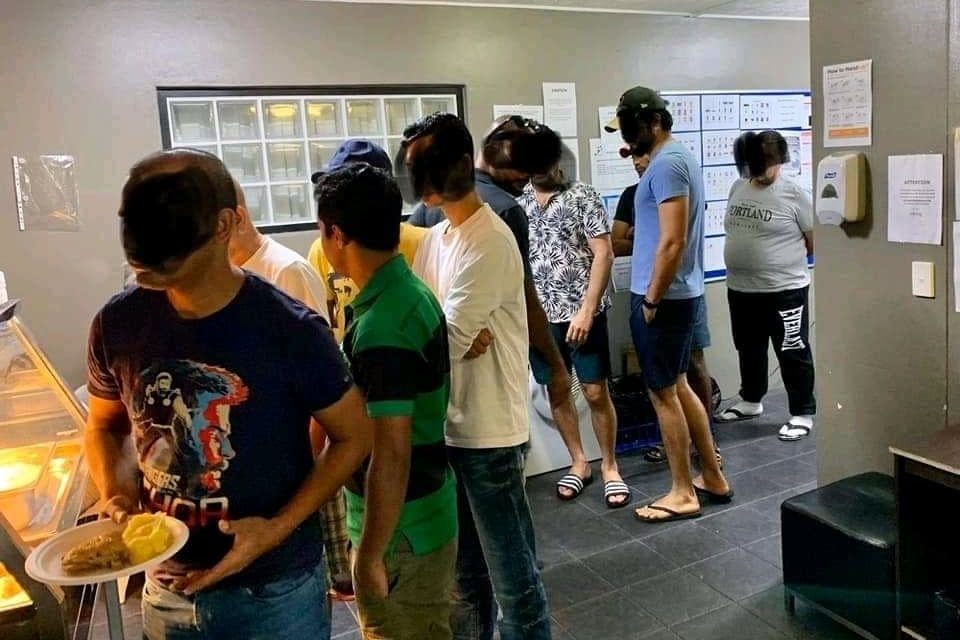


Dr Minns and the RAC would like to see a return to onshore processing of asylum seeker applications and an end to mandatory detention.
“We are not saying everyone who claims asylum should get in, but people have already been assessed to be refugees,” he said.
“We are only advocating for measures that we already had in the past, such as with the Indo-Chinese crisis in the 1970s and 80s.”
More than 400 refugees and asylum seekers continue to remain in offshore detention in Papua New Guinea and Nauru, while an extra 120 people remain confined in hotels after being brought to Australia, often for medical treatment. Thirteen deaths have been attributed to Australia’s offshore detention regime, Refugee Advice and Casework Service (RACS) said.
The protest did not have any speakers because of COVID-19, which also limited the attendance to 100 people who registered with the campaign in line with ACT Government safety requirements. Social distancing practices were put in place and people without masks had them provided at the protest.
RAC marshals ensured safety guidelines were adhered to and hand sanitiser was also provided.
